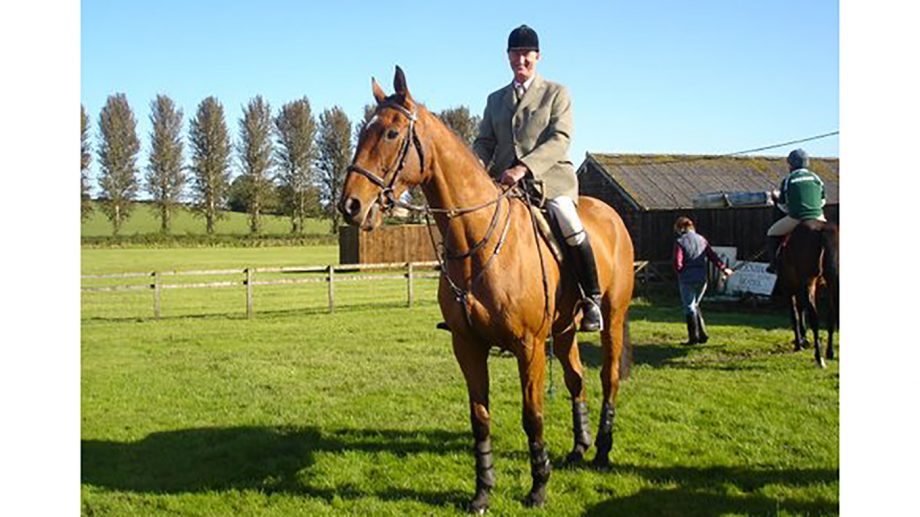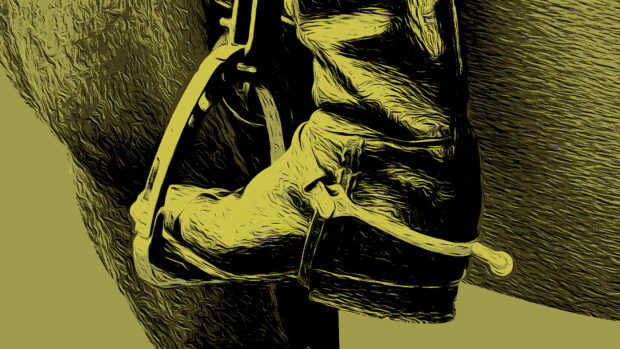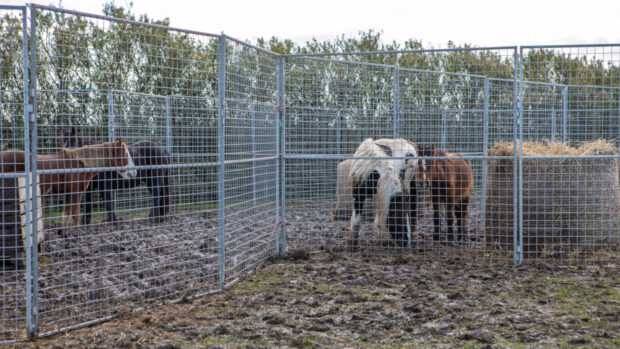The equestrian world is full of unsung equestrian heroes, working with equine charities, teaching, training, breaking and schooling and generally devoting their lives to horses. Sara Walker talks to Bernadette Langfield who set up and runs Shy Lowen, an equine sanctuary in Liverpool.
“I have no idea where my love of horses came from, I was brought up in an upstairs council flat!” laughs Bernadette. “There was no money for horses, but when I was 11 in the early 1970s, I went to secondary school and used to see some horses in a field. The owner, who’d just left the Household Cavalry, asked if I wanted to help and he taught me all sorts of things about horse care. When he left the area I started going to Formby, 10 miles away by bus and train, to work for rides in a riding school. At that time I wanted to be a vet and was studying for my O levels, but I had some problems at home which resulted in me moving out and not taking any A levels.
“I got married at 19, and taught my husband to ride by hiring two horses and teaching him on the move — you couldn’t get away with that nowadays! We had a daughter, Shelley, but later split up. I then got remarried to Eric, and as a parent I wanted Shelley to have all the things I hadn’t, so I got her a pony. We moved to a DIY yard, and then I met Comet, the horse who was to change my life. He had basically been abandoned there, hadn’t been out of the field for six months and had become so aggressive through lack of handling and hunger that other liveries had to fend him off! I tracked down the owner, and offered to buy the horse. The owner refused, on the grounds that Comet was ‘one of the family!’ I kept my temper and arranged to take Comet on loan instead.
“I had Comet for four years, and turned him from a neurotic mess to a healthy, happy, rideable horse. I followed Monty Roberts’ methods, which were new to the UK then and unlike anything I’d seen before. You can guess what happened next — in 1991, the original owner turned up wanting the horse back. They took him away, and he went to Myerscough College on working livery — we eventually managed to buy him back with the help and support of the college. From that moment on, I promised Comet that no horse I was aware of would have to go through what he experienced.
“I got in touch with the local authority, and they offered us some land if we would clear it of the illegal tippings, which included rubble, asbestos and even old cars. We got local waste companies involved, and they were able to salvage some of the rubbish and sell it to keep costs down — it still cost us £16,000 though.
“The sanctuary opened on 9 November 1999 with five horses – Comet, an ex-racehorse, a former broodmare, a Welsh colt yearling bought at auction as a children’s pony and my daughter’s pony, the only non-rescue. I called the sanctuary ‘Shy Lowen’ (www.shylowen.com), Gaelic for ‘home of happiness’.
“We’re in a very poor area of Liverpool with high unemployment rates, and as soon as we opened we became a target for vandalism. One night, Eric and I managed to catch five young teenagers sneaking through the hedge. I asked them why they didn’t try helping instead of destroying, and they said ‘You must be rich, you’ve got horses. You’d never let us help.’ I invited them to come into the sanctuary through the front gate not the hedge, and they really worked hard and helped us get the place up and running. That was the start of us getting involved in the local community — in fact, I thought I’d invented equine therapy until the internet came along!
“We still had no official funding, and Eric and I were paying for everything out of our own pockets, re-mortgaging our house to build barns and an education centre. We became a registered charity in 2008, a little island of positivity in a sea of negativity.
“We now have about 50 horses at the centre and hundreds more out on permanent loan. We work with autistic children; military personnel with addiction issues; children with emotional needs such as refugees and a homeless charity. Local people can also come and ride cheaply, or for free if they help out.
Continued below…
You might also be interested in:

My life with horses: Dickie Jeffreys — ‘it’s quite right that eccentrics like me are a bit more regulated now!’
H&H talks to Northumberland-based Dickie Jeffreys, who runs Kimmerston Riding Centre wife Jane, about hunting, running the centre and the

Subscribe to Horse & Hound magazine today – and enjoy unlimited website access all year round
“I think the equine rescue crisis is getting worse in the UK, for several reasons. People think horses are worth money and breed them indiscriminately, and they haven’t understood how much it costs to keep them. We’re also seeing more elderly horses who can’t be worked any more, rejected by their owners. It’s time people learned that horses aren’t disposable. I’d like to see the current Animal Welfare Act expanded to meet the emotional needs of animals rather than just the physical.
“In 2017 I was awarded the International Fund for Animal Welfare (IWAF) Equine Welfare Award, which was both a huge shock and a huge honour. I felt humbled at being singled out, though – Shy Lowen is a team, made up of both people and horses. We’re all in this together, and together we’ll stay!”
For all the latest equestrian news and reports, don’t miss Horse & Hound magazine, out every Thursday





